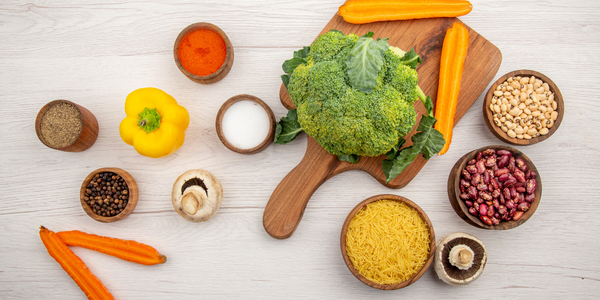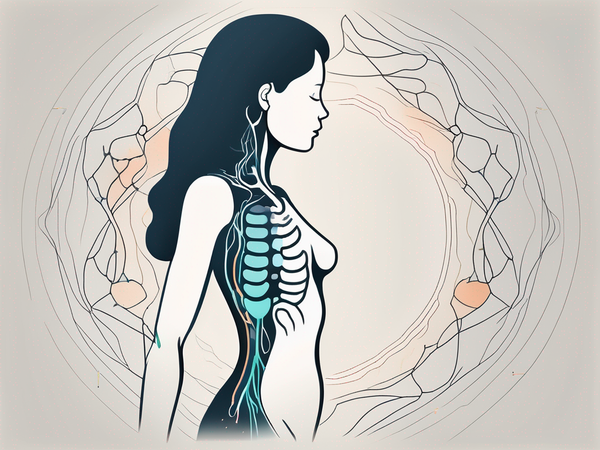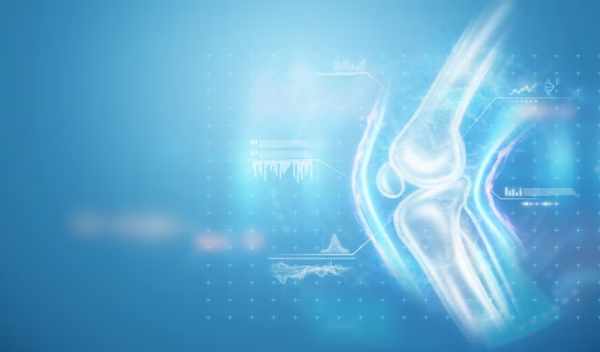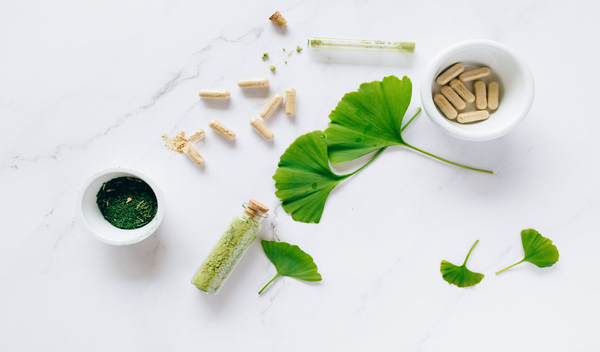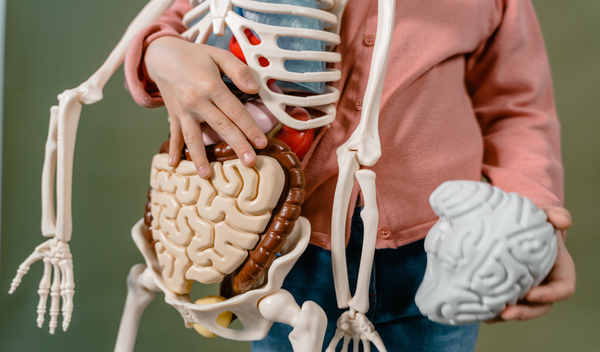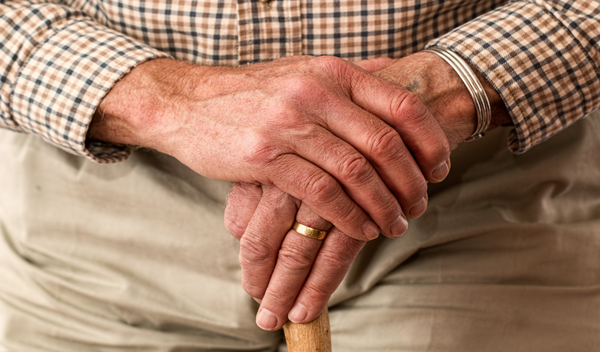You might have seen a large number of people complaining about joint and bone pain in their fifties. While weakened bones and lower bone density is a normal phenomenon at that age, you can avoid this pain if you take good care of your bones and joints in the early years of life.
Taking care of your bones is not difficult if you follow the right steps and make them a part of your daily lifestyle. But not a lot of people are familiar with how to take care of their bones, what changes to make, or even what bone health supplements to consume. If you are one of them, don’t worry, we’ve got you covered.
In this blog, we will talk about bone health and the lifestyle changes you can make to ensure you have the healthiest and strongest bones.
Importance Of Keeping Your Bones Healthy

Healthy bones are dense, strong, and support your body, which is why when you're younger, you lead a more active life. Unfortunately, as you get older, your bones naturally tend to become weaker, less dense, and more brittle. This may lead to damage or breakage. Lack of bone mass also increases the chance of Osteopenia which if not cared for leads to osteoporosis. Osteopenia means that your bones are less dense than normal, but not so porous to be diagnosed with osteoporosis. Studies show that one in every three women & one in every five men suffer from osteoporosis. The chances of you developing this condition depend on how much bone mass you attain before you cross 30.
While the bone renewal process happens continuously throughout your life, as you get older, however, bones break down faster and take longer to rebuild, which is why you're more prone to fractures in the later stages of your life.
Therefore, to take good care of your bones, you need to ensure you have higher bone mass, and to do that you need to make the lifestyle changes listed below.
Lifestyle Changes to Support Bone Health
-
Dietary Modification
Food is the first and the most crucial necessity for humans. And to ensure good bone health, you must have a healthy relationship with food and nutrients. Lack of essential nutrients and minerals in the diet can lead to several health issues, including bone dysplasia in children and delayed recovery in orthopedic patients. So, make sure your diet consists of all the essential nutrients good for bone health. You should:
-
Eat Lots of Vegetables and Fruits
Fruits and vegetables are considered to be the best sources of vitamins for bones and joints. Vegetables like leafy greens such as bok choy, Chinese cabbage, kale, collard greens, and turnip greens are rich in vitamin K which help increase your bone density or bone mass, reducing the risk of fractures. Most fruits consist of Vitamin C and other vitamins that have anti-oxidative properties. Vitamin C stimulates bone-forming cells, and the antioxidant properties of Vitamin C also protect the bone cells from damage.
Fruits and vegetables also produce alkaline-like chemicals which support digestion, this, in turn, helps maintain bone strength. When the pH levels of your blood tip towards the acidic side, your body extracts calcium and other minerals from your bones to neutralize and balance your blood's pH levels. This can further weaken your bones. So, ensure you eat at least one and a half cups of fruit and two cups of vegetables daily.
-
Consume Enough Protein
Dietary protein can positively impact bone health by increasing calcium absorption and muscle mass. Fifty percent of the bones are made up of protein and according to research, women who consume an adequate amount of protein are known to have better bone density. Some of the best protein-rich foods include:
Eggs: 1 egg = 7 grams of protein
Milk: 1 glass of milk = 8 grams of protein
Broccoli: 1 cup = 3 grams of protein
Quinoa: 185 grams of cooked quinoa = 8 grams of protein
Peanuts: 2 tablespoon = 7 grams of protein
-
Have Calcium Rich Foods
Calcium is an essential mineral required by your body for building healthier bones. Almost every cell of your body utilizes Calcium in some way to function efficiently. Some calcium-rich foods you can add to your diet include:
Chickpeas: 1 1/2 cups of chickpeas = 315 mg of calcium
Almonds: 3/4 cup = 320 mg of calcium
Dried figs: 1 1/2 cups of dried figs = 320 mg of calcium
Chia seeds: 100 grams = 631 mg of calcium
Cow’s milk: 1 cup = 306–325 mg
-
Have Enough of Vitamin D and Vitamin K
Vitamin D and K are significant building factors for your bones. These vitamins allow better absorption of Calcium in the body. Vitamin D is also essential for bone mineralization and is positively associated with bone mineral density. Vitamin K, on the other hand, activates the proteins involved in the bone formation process.
Foods that are rich in vitamin D include butter, cheese, egg yolk, fish liver oils, fortified cereals and bread, fortified milk, herring, mackerel, oysters, and salmon.
Foods rich in vitamin K include broccoli, brussels sprouts, cauliflower, chickpeas, dairy products, eggs, kale, and vegetable oils (olive, canola).
Nutritional Supplements
Taking bone health supplements is the easiest way to take care of your bones and make sure your body gets enough of the nutrients required for good bone health. While a healthy diet consisting of enough nutrients can promote the proper functioning and health of your bones, most of the time, it’s not enough. Adding bone supplements will put you in a safe spot. Here are a few bone health supplements to opt for bone health: -
- Collagen Supplements – Collagen is the main protein found in bones. It consists of the amino acids and other crucial components required for building bones and tissues. Thus, collagen supplements will provide structure, support, and strength to your bones and connective tissues.
- Hyaluronic Acid – Hyaluronic acid plays a huge role in the formation of hyaline cartilage providing support and flexibility to the bones. Hyaluronic acid also cushions the ends of the bones, protecting them from degradation.
- Vitamin D3 – Studies suggest that Vitamin D3 supplementation may positively impact bone health by improving bone material strength. The use of D3 supplementation in adolescence can also help in achieving a higher bone mass in adults, making it one of the vital vitamins for bones and joints.
Physical Activities and Exercise
Engaging in physical activities is highly recommended to prevent an array of diseases, including cancer of certain types and heart diseases. Exercising is also proven to help stimulate the formation of bones and improve metabolism. Activities like walking, jogging, dancing, and tennis are highly beneficial for bone health while yoga increases flexibility and improves balance, preventing any falls and breaks.
If you are into strength training and weight-bearing exercises, it’ll positively impact bone growth. Also, high-impact exercises like jumping jacks and burpees promote new bone formation. Some studies suggest that these physical exercises not just help in preventing bone loss but also in building bone mass. So, make sure you include some physical activity in your daily routine, be it running, walking, hiking or trekking, climbing stairs, dancing, etc.
Limit Alcohol and Stop Smoking
Excessive consumption of caffeine and alcohol can hamper nutrient absorption in your body. Heavy drinking can affect the hormones of women leading to menstrual problems. In men, it lowers testosterone formation. And all of it leads to a reduction in bone formation. Also, alcohol affects your physical balance, increasing the chances of falling and breaking your bones.
There is a connection between smoking and bone density. It reduces the blood supply to bones and several other tissues. Smoking also affects the body’s absorption of Calcium, which is vital for bone health.
Wrapping Up
Your efforts in taking good care of your bones earlier in life will pay off in your old age. However, strong and healthy bones are something people take for granted. Therefore, it is time to start taking care of them now by changing your lifestyle habits, no matter if you’re in your 20s or 30s.
References
- Blekkenhorst LC, Hodgson JM, Lewis JR, Devine A, Woodman RJ, Lim WH, Wong G, Zhu K, Bondonno CP, Ward NC, Prince RL. Vegetable and Fruit Intake and Fracture-Related Hospitalisations: A Prospective Study of Older Women. Nutrients. 2017 May 18;9(5):511. doi: 10.3390/nu9050511. PMID: 28524097; PMCID: PMC5452241. https://www.ncbi.nlm.nih.gov/pmc/articles/PMC5452241/
- Bonjour JP. Protein intake and bone health. Int J Vitam Nutr Res. 2011 Mar;81(2-3):134-42. doi: 10.1024/0300-9831/a000063. PMID: 22139564. https://pubmed.ncbi.nlm.nih.gov/22139564/
- Benedetti MG, Furlini G, Zati A, Letizia Mauro G. The Effectiveness of Physical Exercise on Bone Density in Osteoporotic Patients. Biomed Res Int. 2018 Dec 23;2018:4840531. doi: 10.1155/2018/4840531. PMID: 30671455; PMCID: PMC6323511. https://www.ncbi.nlm.nih.gov/pmc/articles/PMC6323511/
- Wen L, Chen J, Duan L, Li S. Vitamin K-dependent proteins involved in bone and cardiovascular health (Review). Mol Med Rep. 2018 Jul;18(1):3-15. doi: 10.3892/mmr.2018.8940. Epub 2018 Apr 27. PMID: 29749440; PMCID: PMC6059683. https://www.ncbi.nlm.nih.gov/pmc/articles/PMC6059683/
- Laird E, Ward M, McSorley E, Strain JJ, Wallace J. Vitamin D and bone health: potential mechanisms. Nutrients. 2010 Jul;2(7):693-724. doi: 10.3390/nu2070693. Epub 2010 Jul 5. PMID: 22254049; PMCID: PMC3257679. https://www.ncbi.nlm.nih.gov/pmc/articles/PMC3257679/
- Gupta RC, Lall R, Srivastava A, Sinha A. Hyaluronic Acid: Molecular Mechanisms and Therapeutic Trajectory. Front Vet Sci. 2019 Jun 25;6:192. doi: 10.3389/fvets.2019.00192. PMID: 31294035; PMCID: PMC6603175. https://www.ncbi.nlm.nih.gov/pmc/articles/PMC6603175/














